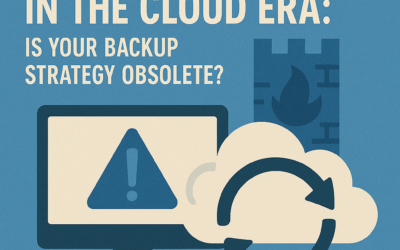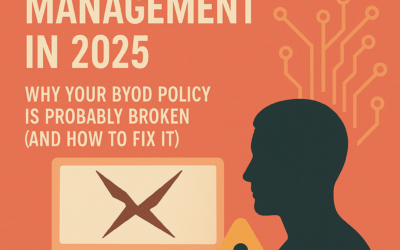In today’s manufacturing landscape, machinery and IT infrastructure support efficient operations and innovation. As the digital transformation wave sweeps the manufacturing sector, leaders are coming to understand the pressing need for IT systems that can grow, adapt, and innovate. If you’re a C-suite executive at a manufacturing firm, especially in the bustling Midwest with over 50 employees, comprehending the nuances of scaling IT systems without sacrificing flexibility becomes paramount.
Here’s how you can navigate this challenging terrain:
Embrace Industry 4.0 with Cloud Computing
The shift towards Industry 4.0 in manufacturing hinges on interconnected devices and real-time data that inform decisions. Cloud solutions have become pivotal in this transformation, providing flexibility and scalability in managing vast data originating from the factory floor.
Recommendation: Evaluating hybrid or multi-cloud strategies can be beneficial. Such strategies retain the security and control of on-premises solutions while harnessing the scalability advantages of cloud systems.
Microservices for Modular Manufacturing Applications
The agility of modern manufacturing applications is a prerequisite. By incorporating a microservices architecture, individual components of manufacturing IT systems can be upgraded or scaled without causing disruption.
Recommendation: Transitioning from monolithic applications to microservices can lead to smoother integrations, quicker deployments, and enhanced scalability.
Continuous Training for Smart Manufacturing
The intertwined nature of IT and manufacturing demands that your workforce be proficient with machinery operations and the software that drives them. Ensuring regular training can prepare them to manage the evolving landscape of intelligent manufacturing.
Recommendation: Focusing on interdisciplinary training can help your team adeptly handle the convergence of manufacturing and IT.
Adopting Agile Methodologies in Manufacturing IT
The principles of Agile extend beyond just software development. Implementing Agile methodologies in manufacturing IT projects can lead to rapid deployments, iterative improvements, and a malleable approach based on real-world feedback from the factory floor.
Recommendation: Integrating Agile principles into IT project management can pave the way for adaptability and more timely responses to the dynamic manufacturing environment.
Collaborations with IT Solution Providers
Manufacturing presents its unique set of IT requirements. Collaborating with specialized IT solution providers can furnish insights, tools, and resources tailor-made for manufacturing challenges.
Recommendation: Cultivating strategic partnerships with IT vendors with demonstrated manufacturing expertise can be a game-changer.
Real-time Monitoring & Predictive Analytics
The pulse of modern manufacturing beats with real-time data. Actively monitoring your IT systems and utilizing predictive analytics can empower you to anticipate challenges, fine-tune production schedules, and maintain consistent output.
Recommendation: Directing investments towards state-of-the-art monitoring tools and analytics solutions designed for manufacturing can be advantageous.
Ensuring IT Redundancy in Manufacturing
System failures can bring production lines to a standstill, incurring substantial losses. The essence of manufacturing IT lies in its robustness, backups, and prompt recovery solutions.
Recommendation: It’s essential to review and test disaster recovery plans periodically. Additionally, considering redundant systems and failover mechanisms tailored for manufacturing operations can safeguard against unforeseen challenges.
Conclusion:
The dynamic manufacturing realm is paradigm-shifting as operational machinery intertwines with IT. The key to scalability in manufacturing IT systems lies in harmoniously growing both domains while preserving adaptability.
For C-suite leaders overseeing manufacturing enterprises, marrying traditional production with modern IT can present a formidable challenge. However, your firm can be well-equipped to meet present demands and future challenges with the right mix of cloud integrations, microservices, continuous training, agile methodologies, purposeful collaborations, real-time analytics, and stringent disaster recovery measures.
Manufacturing’s marriage with IT is setting new industry benchmarks. Your approach to scaling and adapting in this transformative era will carve out your competitive edge. The pivotal question remains: Are you poised for this evolution?




